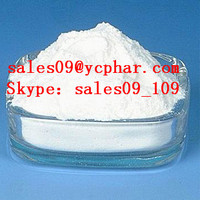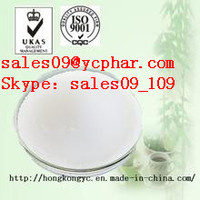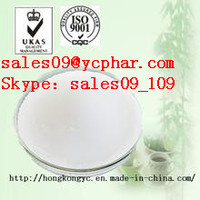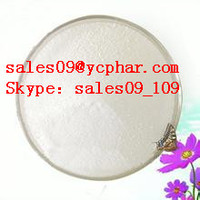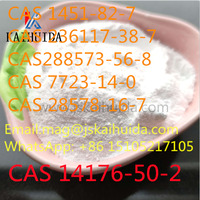Propitocaine hydrochloride
Product Quick Detail
- Packaging
- N/A
- Delivery
- 15 Days
Specifications
Detailed Product Description:
Synonyms: Prilocaine hydrochloride;2-(Propylamino)-o-propionotoluidide hydrochloride; alpha-propylamino-2'-methylpropionanilide hydrochloride; Citanest;
N-(2-Methylphenyl)-2-(propylamino)-propanamide hydrochloride; N-(a-propylaminopropionyl)-o-toluidine hydrochloride;
CAS No.: 1786-81-8
Assay: 98%
Packing: 25kg/drum
M.F.: C13H21ClN2O
M.W.: 256.7716
Appearance: White crystalline powder
Product Description:
Prilocaine is a local anesthetic of the amino amide type. Prilocaine is often used in dentistry. Prilocaine is also often combined with lidocaine as a preparation for dermal anesthesia
(lidocaine/pril ocaine or EMLA), for treatment of conditions like paresthesia.
Local anesthetic is a substance that causes loss of sensation only to the area to which it is applied without affecting consciousness. Most local anesthetics structures have amino-ester or an
amino-amide group which are linked to hydrophilic (secondary or tertiary amine) and to hydrophobic group (aromatics) on the other sid. The ester can be hydrolysed in plasma by the enzyme
pseudocholinesterase into para-aminobenzoic acid. Amide is stable for longer acting and more systemic distribution. Ester types include Procaine (Novocain), Chloroprocaine (Nesacaine), Cocaine,
Tetracaine (Pontocaine), Benzocaine, Tetracaine. Amide types include Lidocaine (Xylocaine), Mepivacaine(Carbocaine), Prilocaine (Citanest), Bupivacaine (Marcaine), Etidocaine (Duranest).
Applications:
Propitocaine is a local anaesthetic used in the form of a hydrochloride to relieve the pain of skin. This compound is a componebt of skin patch products.
Email:sales09 at ycphar dom com
Skype:sales09_109
Telephone:86-027-50756084
- Country: China (Mainland)
- Business Type:
- Market:
- Founded Year:2001
- Address:武昌中山路496号
- Contact:Sadiya Sun
Other products from 湖北远成药业有限公司
Relate products of Propitocaine hydrochloride
14176-50-2 Tiletamine hydrochlorid
我们的主要和热门产品出口如下:研究化学品,医药中间体,食品添加剂,化工原料等产地:中国江苏应用:研究化学品,医药中间体MOQ:1kg纯度:> ...
Levamisole hydrochloride / Levamisole hcl CAS 16595-80-55 whtsapp:+8613383528581
whtsapp:+8613383528581 sarah(at)roilanddt(dot)com Quick Details ProName:Levamisole (hydrochloride) best price ... CasNo:16595-80-5 Molecular Formula:C11H12N2S.HCl Appearance:white powder Application:medical intermediate DeliveryTime:3-15 working days PackAge:aluminium ...
L-Epinephrine hydrochloride
L-Epinephrine hydrochloride Chemical Properties IUPAC Name: 4-[(1R)-1-Hydroxy-2-(methylamino)ethyl]benzene-1,2-diol hydrochloride Synonyms of L-Epinephrine hydrochloride (CAS NO.55-31-2): (-)-3,4-Dihydroxy-alpha-((methylamino)methyl)benzyl alcohol hydrochloride ; ...


